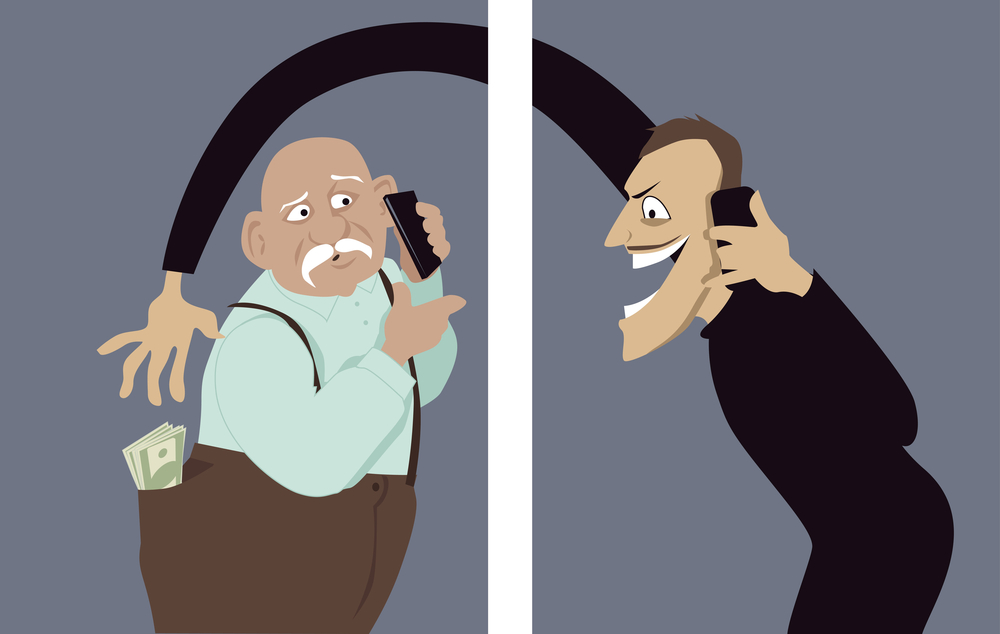
Coronavirus scams targeting the elderly are rising, according to a new report from the Federal Trade Commission (FTC).
COVID-19 is rampant in the United States. Millions of Americans are exposed to the virus, and some are in additional danger beyond catching the disease.
Scammers reach out to vulnerable victims – grandparents, in this case – and pretend to be a relative who is in need of financial support due to the Coronavirus.
Most scammers aim to take advantage of the Coronavirus by pulling on the heartstrings of loving, unsuspecting grandparents.
Here are three of the most common tactics Coronavirus scammers use and how you can identify when a scam might be taking place.
“I need the money now”
Coronavirus scams create a sense of urgency. Typically, the scammers pretend to be stuck in a hospital or in another country. The scam demands an immediate transfer of funds in order to free the supposed-relative from their bind.
The FTC says that you must resist the urge to act immediately.
No matter how dramatic or drastic the situation might be, you should keep your cool. This will help you slow down, analyze the situation, and build a solid plan for finding out if your relatives are really in danger or if this is a scam.
No mistaken identity
This next part will rely on you following step number one. The FTC says after you resist the urge to act immediately, you should verify the caller’s identity.
Call a number you know is a trusted family member. Ask them if they’ve heard about this relative being stuck in a hospital or overseas. Ask questions that only the person they pretend to be would know.
Taking a breath, slowing down, and asking questions a stranger would not be able to answer is a great way to identify whether or not you’re being exposed to a scammer.
Do not send cash, gift cards, or money transfers
If you’re not able to immediately verify the caller’s identity, the FTC says you should refrain from sending cash, gift card, or wiring money.
Once you’ve sent the money to the scammer, they disappear along with your funds. You won’t get that money back, and you set yourself up for more scams in the future. Once a criminal knows you’re a hit for giving up the goods, there’s a chance it will happen again.
These are simple steps to follow, and should be easy enough for most grandparents to remember. Children of elderly adults should also exercise due diligence in helping their parents avoid finance-related scams. While the world tries to recover from the outbreak of COVID-19, we should also work to protect the most vulnerable citizens.

